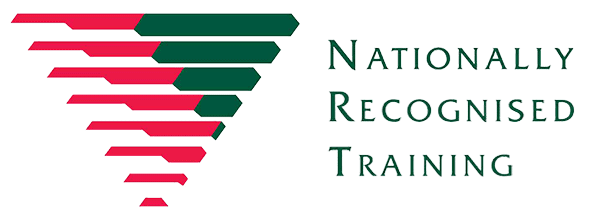
ADVANCED
NETWORKING
Course Overview
With our ICT50220 Diploma of Information Technology (Advanced Networking), you will get foundational skills in setting up and managing complex network environments in organizsations, as well as preparing for and responding to cyber security threats.
You will also develop the skills required to network servers, utilise desktop virtualisation, configure and manage advanced virtual computing environments, manage complex ICT networks and communication, understand and respond to cyber security threats, protect critical organisational infrastructure, and lead agile projects and teams.

Entry Requirements
There are no training package entry requirements associated with this qualification; however, the following local entry requirements apply.
- Applicants must be at least 18 years old.
- Applicants must have satisfactorily completed a minimum of Australian Year 10, or equivalent.
- Applicants must have basic knowledge of computer applications.
- Evidence of English language proficiency must be evidenced by providing any of the following:
- an IELTS examination result of 6.0 (overall score) or higher completed within the two years preceding the date of application
- a Pearson Academic overall score of result of 46 or higher
- For packaged courses i.e. ELICOS and a Bachelor course, 10 weeks (for IELTS=5.0) and 20 weeks (for IELTS=5.5) of ELICOS is a ‘minimum’ requirement to meet the IELTS threshold
- Successful completion of a General English course from an approved ELICOS provider at Advanced Level or higher (CEFR = C1)
Note: Applicants unable to provide any of the above evidence of English proficiency must undertake and successfully complete a Language, Literacy and Numeracy (LLN) Assessment and achieve an ACSF Level 3.
An IELTS score of 6.0 is equivalent to an ACSF exit level 3. This indicates that a person at this level should meet all the language requirements associated with level 3 ACSF and demonstrate some ability towards level 4 skills
COURSE UNITS
CORE UNITS
ICT Essentials
UNIT CODE |
UNIT NAME |
BSBXCS402 |
Promote workplace cyber security awareness and best practices |
BSBCRT512 |
Originate and develop concepts |
BSBXTW401 |
Lead and facilitate a team |
ICTSAS527 |
Manage client problems |
ICTICT517 |
Match ICT needs with the strategic direction of the organisation |
ICTICT532 |
Apply IP, ethics and privacy policies in ICT environments |
ELECTIVE UNITS
Communication and Virtual Environments
UNIT CODE |
UNIT NAME |
ICTNWK540 |
Design, build and test network servers |
ICTNWK559 |
Install an enterprise virtual computing environment |
ICTNWK536 |
Plan, implement and test enterprise communication solutions |
ICTNWK529 |
Install and manage complex ICT networks |
ICTNWK557 |
Configure and manage advanced virtual computing environments |
Analyse and Design Network Security
UNIT CODE |
UNIT NAME |
ICTCYS407 |
Gather, analyse and interpret threat data |
ICTNWK546 |
Manage network security |
ICTCYS613 |
Utilise design methodologies for security architecture |
ICTCYS608 |
Perform cyber security risk assessments |
Managing and Responding to Incidents and Threats
UNIT CODE |
UNIT NAME |
ICTICT529 |
Organise and lead agile projects |
ICTSAS529 |
Prioritise ICT change requests |
ICTCYS402 |
Identify and confirm cyber security incidents |
ICTCYS610 |
Protect critical infrastructure for organisations |
ICTSAS526 |
Review and update disaster recovery and contingency plans |
Please note that The One International College:
- does not guarantee an assessment outcome such as ‘100% pass rates guarantee’ or énrol and you will achieve a certificate or diploma'.
- does not guarantee enrolment in courses that will lead to outcomes outside the RTO’s control, such as guaranteeing a job or an immigration outcome once the training is completed.

CAREER
OPPORTUNITIES
When this course is successfully completed students can apply for jobs within the Information Technology industry:
> Network Engineer
>Systems Administrator
>Network Security Analyst
DIPLOMA OF INFORMATION TECHNOLOGY
OTHER SPECIALISATIONS
Course Duration and Delivery
The course program is scheduled to be delivered over a 104-week timeframe of full-time study consisting of 80 weeks of scheduled class time plus 24 weeks of breaks.
- Classes are scheduled at 20 hours per week (15 hours face-to-face + 5 hours online learning).
- The course is divided into 8 terms.
- Holiday periods are 3 weeks in duration for every term-break throughout the year.
Fee Inquiries
Please contact the college directly or fill out the form below.

